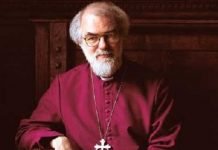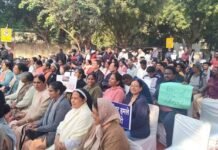In the past two months, the “Extradition Bill” (2019) sparked a series of marches and spread conflicts. As clashes between the police and civilians grew more acute, tension permeated the city, causing anxiety and pain.
We think that when Christians respond to political or public issues, we should remember that we are all members of God’s family, even if we hold different opinions. We might stand on opposite sides, and feel animosity or even hatred towards those with different views. When this happens, we have to be extremely careful, because our hearts might have fallen into the control of the “evil one”. We need to remember that benevolent thoughts come from God while wicked intentions originate in the “evil one,” Satan. In these times, we all need to pray to God for mercy and forgive one another.
When conflicts arise between us, people from both sides need to respect the other party, listen, communicate, and build mutual trust. In the current social atmosphere, we tend to adopt a confrontational approach in response to political issues. If the Church, too, takes this approach, how are we different from the rest of the world? We are one family, can we try to stand in each other’s shoes and understand one another’s position?
The manner of expression is also an important issue. Sometimes, an expression of kindness can open up a new horizon while responses born of animosity only lead to both parties ignoring the others’ demands and opinions.
“Love your enemies and pray for those who persecute you, so that you may be children of your Father in heaven; for he makes his sun rise on the evil and on the good, and sends rain on the righteous and on the unrighteous.” (Matthew 5: 43)
Archbishop Paul Kwong Bishop Andrew Chan Bishop Timothy Kwok
4 August 2019




I personally admire the resolution shown by the people of Hong Kong to retain their civil rights. They show tremendous courage and resourcefulness. I don’t know what other Christians denominations are doing or saying about this crisis, but I can well understand the people not wanting to lose any more of their freedoms. There are somethings that are worth fighting for.
The days of the Han people kowtowing to the Mandarin minority could be coming to an end. The world is wising up to the Mandarin’s crushing debt mechanism know as the Silk Road also. A generation of TEC clergy kept uttering the importance of getting on the right side of history (Marxist domination). Abp. Kwong is shifting his position to straddling the right side of history divide.
What we do know is that the Chinese government is determined to tighten its hold on the nation and extend its sphere of world influence. You can understand it; a country so vast so populous and diverse could so easily descend into chaos. We know that the Christian Church is experiencing more persecution and leaders are being thrown into prison, Tibet has been subsumed and lost its independence, and Hong Kong must also be tamed so that the Communist regime may retain control and intimidate others..
We must pray for them that God’s will prevails.
The problem, dear Bishops, is that the Communist leadership on the mainland is not interested in mutual trust and respect, but only in domination.
Kwong is a traitor to all what the church has stood for with regards to human rights. The tragedy, however, is that he’s doing what he is doing as a Primate of the Anglican Communion. To be fair by the guy, I guess he is mimicking the ABC and the rest of the chief monkeys leading the Communion.
More precisely, given that we are speaking of China, he is more so mimicking Pope Francis.
Personally, I am of the opinion that the ABoC and his followers among the primates are no longer leading the Communion. The leadership is coming from the Global South. The ABoC (or the General Secretary or the Chair of this and that) has only a fancy title. Or perhaps only a recognizable acronym. But no actual authority – since only those bishops leading along the “narrow path” have any authority at all.